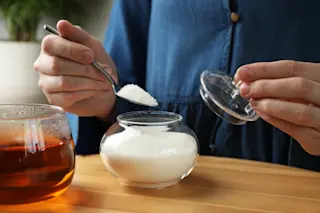The toxic chemical melamine that has already contaminated Chinese milk and eggs may also have been widely used in animal feed, according to new reports from the Chinese state media. Chinese consumers were horrified when it was revealed in September that four babies had died and more than 50,000 were sickened due to tainted infant formula, and the outrage grew in October when eggs from four large companies were also found to be tainted. Since then, the widening scandal has caused companies across Asia to recall products made with Chinese milk or eggs, and the new reports suggest that there may be broader recalls to come.
Melamine can be used to make food products appear to have a higher protein content, and the new admission from the state-run media, which usually suppresses bad news, shows that the trick was commonly used.
"The feed industry seems to have acquiesced to agree ...













